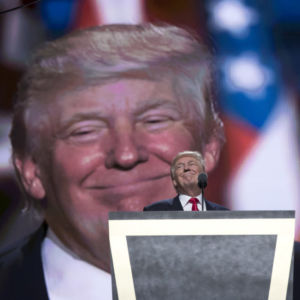Republicans and Democrats are showing roughly the same level of economic confidence as their views have shifted in opposite directions since Election Day, according to a poll out Tuesday.
Gallup found economic confidence has steadily climbed since the election. The weekly average reached its highest point last week since the poll was first conducted in 2008. Republican and Democratic perceptions on the economy have shifted in opposite directions since the election and now both sit at about the same level.
“Before the election, Democrats were much more optimistic than Republicans were about both current economic conditions and the outlook for the economy,” explains Jeffrey M. Jones of Gallup. “Democrats still rate current economic conditions better than Republicans do, while Republicans are more positive than Democrats are about the economy’s direction.”
Republican president-elect Donald Trump won the election Nov. 8 over his Democratic rival Hillary Clinton. Republican economic confidence since the election has soared from negative 42 points to a positive 10.
The index runs from negative 100 points to positive 100 points. If all those surveyed said they believe the economy was good and was getting better, the index would be at positive 100 points. If all those surveyed said the economy was bad and was getting worse, the index would be at negative 100.
“Americans’ evaluations of the economy have changed considerably since Election Day,” the Gallup analysis stated. “Republicans are much more likely to say the economy is ‘getting better’ and even see current economic conditions in a more positive light. Democrats’ confidence has declined, but they still rate the economy more positively than negatively.”
Democrats lost confidence in the economy but not to the extent Republicans gained confidence. Democrats rated their economic confidence at a positive 30 points before the election but that has since fallen to a positive 11. Independents lost some confidence last week but its still remains higher than before the election.
“Given the strong influence of partisanship on how Americans view the state of the nation, including the economy, Democrats’ confidence may sharply decline once Trump is in office,” Jones stated. “The degree to which Republicans’ views improve beyond what their current levels may determine whether confidence nationally remains high or retreats.”
There is still significant room for improvement with average economic confidence at only positive eight points. The low level of confidence over the years is likely the result of the last recession which was followed by a prolonged recovery in the decade since.
“Since 2008, the index has mostly been in negative territory,” the analysis stated. “The major exception came during an eight-week period from late December 2014 through mid-February 2015 when U.S. consumers reacted to a sustained drop in gasoline prices and the weekly average for Gallup’s index reached as high as +5.”
The economy has shown many positive trends in recent years but there have still been major issues. The labor market, for instance, has been steadily growing and is even close to full employment. The labor force participation rate, however, has failed to reach the level it was at before the recession.
“Confidence may stay higher as long as both Democrats and Republicans have reasons to be positive about the economy, given the current and future political situations,” the poll stated. “Outside the political sphere, the economy has also seen record-high stock prices in recent weeks, reports of greater economic growth in the third quarter than in past years and a positive unemployment report released late last week.”
The recession was sparked by the subprime mortgage crisis and the financial crisis of 2007. The poll found economic confidence started at negative 24 points when it was first conducted in 2008. It dropped to a record low of negative 65 points in the following year. Last week was the highest it had ever been at a positive eight points.

